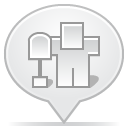If you're running for president, you have to slog through Iowa and New Hampshire.
And then make it through the corridors of Capitol Hill.
Call it the "Congressional Primary."
Many pundits don't notice the impact of the all-important "Congressional Primary." But almost all candidates know that the hallways of Congress are a crucial venue where they must compete.
Each primary and caucus state is like a political decathlon. Every candidate running must compete in particular "field events" unique to that state in order to vie for votes.
In preparation for the New Hampshire primary, candidates sprint between Nashua and Concord. They'll debate at Saint Anselm College. Glad-hand voters devouring homemade, Twinkie look-alikes at the Red Arrow Diner in downtown Manchester.
In the Hawkeye State, candidates pontificate about their positions from the Des Moines Register Soapbox at Iowa State Fair. Enjoy a dip of Blue Bunny Ice Cream in Le Mars. And in Dyersville, materialize out of the cornfield and onto the diamond, ala Shoeless Joe Jackson in "Field of Dreams."
And in between all of those gymnastics, candidates also parachute into the U.S. Capitol for the rigors of the Congressional Primary. The candidates will caucus with lawmakers in places like the Russell Senate Office Building. Visit senators in the Ohio Clock Corridor just off the Senate floor. Swing by the Speaker's Lobby directly behind the House chamber.
Sure, winning Iowa and New Hampshire is an important step in securing your party's nomination. But winning the endorsement of key lawmakers from critical states can go a long way toward psyching up primary voters.
All politics is local. And if a candidate wins over a respected lawmaker back home, he or she can serve as a surrogate to court garden variety voters or even drive them to the polls.
Former Massachusetts Gov. Mitt Romney (R) may not be a declared candidate yet. But from the looks of things earlier this week on Capitol Hill, Romney had practically filed paperwork for the Congressional Primary when he paid a series of visits to Republican senators.
Word came on Wednesday that Romney may have a meeting in the Hart Senate Office Building with Sen. Mike Lee (R-UT). Lee is a tea party loyalist who teamed with Republican Tim Bridgewater to dislodge three-term Sen. Bob Bennett (R-UT) at the state party convention last year. Bennett's demise was one of the first signposts to mark the electoral strength of the tea party movement.
Like Lee, Romney is Mormon. But more importantly, a successful presidential candidate needs to court the backing of tea party-supported lawmakers like Lee in the Congressional Primary.
Romney never materialized for what was initially expected to be a morning meeting with Lee. But Romney did surface for an afternoon session.
"Why are you here?" a gaggle of reporters shouted at Romney as he departed Lee's office.
"We're in a hurry, governor. No questions!" coached aide Garrett Jackson as Romney departed.
"Just visiting friends," Romney added as he strode briskly down the hallway and boarded an elevator.
Afterwards, Lee said that he really likes Romney and is glad he signed onto a conservative-backed budget outline called "Cut, Cap and Balance."
That buoyed Lee. Earlier, Lee told a clutch of reporters that a candidate's willingness to sign onto the pledge was "a litmus test for me."
But overall, Lee said he wasn't giving Romney an endorsement. And he noted he was excited about the prospects of Texas Gov. Rick Perry (R).
So put Lee down as an "undecided voter" in the Congressional Primary.
Perry isn't yet a candidate. But there are multiple indications that Perry will take the plunge later this summer.
Regardless of Perry, Romney's Capitol Hill politicking wasn't done yet this day.
He had an additional meeting scheduled downstairs in the office of Sen. Orrin Hatch (R-UT), another fellow Mormon. There, Romney would huddle with Hatch alongside Sens. Scott Brown (R-MA), Thad Cochran (R-MS), Bob Corker (R-TN), Jeff Sessions (R-AL) and Jim Risch (R-ID).
"I'm just popping in to say hello," said Brown as he arrived for the Romney conclave. "He's a great guy and I just want to say hey."
Then came Sessions, the top Republican on the Senate budget panel.
"I'm not making any commitments today," said Sessions. "Gov. Romney has many of the qualities we're looking for in a good president."
Even though Romney isn't officially in the race, the first major poll of this election cycle in Iowa hoisted the former Massachusetts governor to the top of the heap. Rep. Michele Bachmann (R-MN) was a close second. But Sessions wasn't prepared to foist frontrunner status on Romney.
"The polls seem to indicate that (he's in front). But I think it's early," Sessions said. "Candidates will probably go up and down. But we'll see."
Of the crowd gathered in Hatch's office suite, Jim Risch appeared to be Romney's biggest fan.
"I think he's the right man at the right time. This country is in serious financial condition. Given his background, I think he's the person that can turn this country around," glowed Risch.
And Risch described why most presidential hopefuls make cameo appearances on Capitol Hill for the Congressional Primary.
"When you run for president, there's a unique dance that you do and all of this is part of it," said Risch of Romney's Capitol Hill entreaty. "This is part of doing what needs to be done. You're touching bases with opinion makers in states."
After about a half hour, Romney emerged, flanked by a coterie of aides. Reporters and television photographers chased Romney as he stepped into the gigantic atrium of the Hart building, bound for the exit.
An autograph seeker thrust a baseball at Romney. The same man then snapped repeated pictures with his cell phone, Paparazzi style, thrusting the phone just inches from Romney's face.
Reporters barked a few questions. But Romney doesn't answer. Kasie Hunt of Politico asked Romney how he can run for president if he doesn't stop to answer any questions. The governor didn't respond.
Compared to other crucial caucus and primary states, the role of the press is vastly different in the Congressional Primary. In Iowa, candidates make sure they take a few questions from KCCI-TV in Des Moines or the Mason City Globe Gazette. These news outlets reach potential primary voters who are looking to be swayed. But there's no impact constituency with the Capitol Hill press corps. Even though a candidate swings by to chat up possible surrogates, he or she doesn't really need to talk to the press. That drill is reserved for local reporters out on the hustings.
It's still early in the 2012 presidential cycle. Expect other candidates to visit Capitol Hill. Of course, some candidates already toil there. When the House reconvenes Tuesday, it will be the first time it's been in session since Rep. Michele Bachmann (R-MN) officially launched her presidential bid. Rep. Ron Paul (R-TX) is already in. And Rep. Thad McCotter (R-MI) is in the mix as well.
There will also be chatter among fellow lawmakers about these candidates coming and going from Washington. Reporters will watch the tallyboard in the rear of the House chamber to see if they are around to vote or on the road campaigning. Journalists will pepper top leaders like House Speaker John Boehner (R-OH) and Majority Leader Eric Cantor (R-VA) who they support. Others will watch for who endorses whom.
Who wins the backing of influential freshmen House members like Reps. Tim Scott (R-SC), Kristi Noem (R-SD) and Allen West (R-FL)? What about Rep. Jim Jordan (R-OH)? Jordan heads the Republican Study Committee, a bloc of the most conservative 176 House members. What about Rep. Mike Pence (R-IN) who is running for governor? Especially after he tinkered with a presidential bid? How about Sen. John McCain (R-AZ), who fenced with Romney last time before securing the GOP nomination?
And then there will be talk on Capitol Hill about who is a vice presidential contender.
Inevitably, the nominee will dispatch a squadron of confidantes to meet with Boehner, Cantor, Senate Minority Leader Mitch McConnell (R-KY) and Senate Minority Whip Jon Kyl (R-AZ) as they vet the number two spot sometime next summer.
All of this happened last time around. Reporters watched to see if President Obama or McCain returned to the Capitol to vote. Candidate Obama enlisted a vice presidential selection committee to talk with House Minority Leader Nancy Pelosi (D-CA) and Senate Majority Leader Harry Reid (D-NV). There was a kerfuffle when Rep. John Lewis (D-GA), a member of the Congressional Black Caucus (CBC) and a civil rights figure, initially endorsed Secretary of State Hillary Rodham Clinton, then switched to back Mr. Obama. Rep. Emanuel Cleaver (D-MO), now the head of the CBC and an ordained pastor, told the Canadian Broadcasting Corporation that Barack Obama was only a mediocre orator when compared to legendary African American ministers who breathed fire from the pulpit.
And then there was the day in the spring of 2008, when the Democratic nomination was all but assured for the president, when he came to the House floor during a long vote sequence. The scene could best be described as "Beatles-esque." Democratic House members crowded around President Obama like some sort of rock star. Some snapped pictures. Candidate Obama even posed on an ornate stairwell for a photo with near-giddy House pages.
Some interpreted the House appearance as a victory lap for Obama.
And so the Congressional Primary season officially launched this week with non-candidate Romney appearing in the Hart Senate Office Building.
The rules are different on Capitol Hill when it comes to presidential politics. But the Congressional Primary is a part of the nomination process that is as integral as driving through a harrowing New Hampshire snowstorm to speak to the Rotary or attending a steak fry in Iowa.
- Fox's Trish Turner contributed to this report.
Chad Pergram 02 Jul, 2011
--
Source: http://politics.blogs.foxnews.com/2011/07/02/congressional-primary
~
Manage subscription | Powered by rssforward.com






0 komentar: